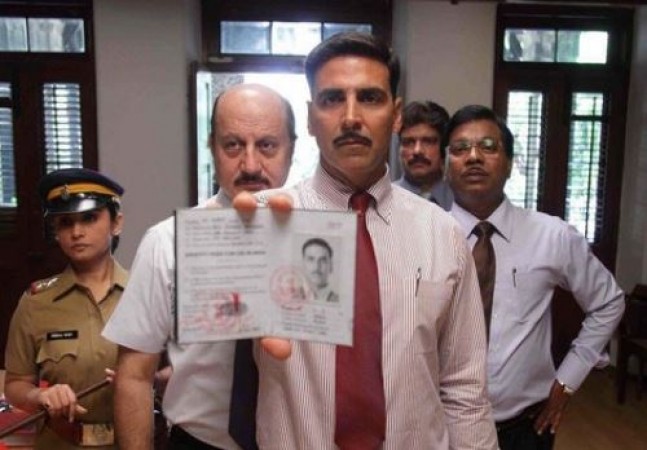
Creating a specific era in a movie is a difficult task. From costumes and props to settings and dialogue, it necessitates meticulous attention to detail. "Special 26," a Bollywood heist drama directed by Neeraj Pandey, stands out among other films in this category. The film, which was released in 2013, transports us to the 1980s, a time when typewriters, landlines, and smartphones were not commonplace. While many aspects of the movie added to its nostalgic atmosphere, the director's decision to forbid cell phones on the sets stands out. We'll examine the motivations behind Neeraj Pandey's audacious decision in this article, as well as how it affected the actors and the overall authenticity of the movie.
In the 1980s, when India was dealing with a string of high-profile heists committed by a gang of imposters posing as CBI officers, "Special 26" transports viewers to that era with its suspenseful heist thriller. The movie, which is based on actual events, has a large ensemble cast, including Akshay Kumar, Anupam Kher, and Manoj Bajpayee. It was clear right away that Neeraj Pandey, who is renowned for his love of realism and meticulous storytelling, was not content with simply recreating the fashion trends and social mores of the 1980s. He sought to fully submerge the cast and crew in that time period.
Mobile phones were almost nonexistent in the 1980s, a far cry from the smartphone-dominated world of today. The director Neeraj Pandey was aware that having contemporary mobile phones on the sets might make it appear that the scene is taking place in the 1980s. So he bravely decided to forbid cell phones during the filming of "Special 26." This decision was not just for aesthetic reasons; it was also a creative and imaginative attempt to immerse the cast and crew in the past.
Neeraj Pandey vigorously upheld the mobile phone ban to make sure that all actors truly lived the 1980s aesthetic. Members of the cast and crew had to leave their smartphones outside the set or put them in special lockers before they could enter. This step was taken in an effort to remove the team from the modern world's comforts and diversions so they could fully embrace 1980s culture.
The actors encountered an interesting challenge when they suddenly lost access to the digital world because they were used to the convenience and connectivity that smartphones provided. Giving up our smartphones for the duration of the shoot was a difficult adjustment to make in a time when they have become extensions of our identities.
The lead actor in the movie, Akshay Kumar, was open about his experience working without a phone. He talked about how it was initially uncomfortable and strange but eventually enabled him and the rest of the cast to become fully immersed in their roles and the time period. It made them reliant on the apparatuses and innovations of the 1980s, such as payphones and actual maps, which gave depth to their performances and an air of realism to the movie.
The cast and crew's interpersonal bonds got stronger as a result of the mobile phone ban, which was one of its unexpected advantages. Conversations and interactions naturally shifted to the people who were physically present on the set once smartphones were eliminated from the equation. This helped to foster a spirit of teamwork and camaraderie, which improved the workplace as a whole.
The absence of mobile phones encouraged face-to-face communication, fostering a greater sense of unity among those involved in the project in an era where people are frequently engrossed in their screens. A special bond was formed as a result of the shared experience of not having smartphones, and this connection translated into performances on screen that were more genuine and connected.
The absence of cell phones on the set had an impact on the actors, but it also significantly improved the film's realism. The cinematography, set design, and overall visual aesthetics were unaffected by anachronisms because smartphones weren't present all the time. The director and his crew were successful in recreating an authentic 1980s atmosphere down to the smallest of details.
It is impossible to overstate the significance of this dedication to authenticity. Every element of the setting is crucial in period films like "Special 26" in order to transport the audience to that specific era. Neeraj Pandey made sure that every frame of the movie captured the spirit of the 1980s by removing the distractions of contemporary technology.
Neeraj Pandey's choice to forbid mobile phones on the "Special 26" sets was not merely careless; rather, it was a clever and strategic move to increase the film's authenticity and fully immerse the cast and crew in the 1980s. This brave choice ultimately paid off by resulting in more sincere performances and a stronger sense of camaraderie among the team, despite initially posing difficulties for the actors.
The movie "Special 26" is proof of the strength of a director's dedication to his or her vision. Neeraj Pandey made a movie that not only held viewers' attention with its compelling story but also transported them back in time so they could experience the 1980s as if they were there by eschewing modern technology in favour of a bygone era's way of life. "Special 26" serves as a reminder of the magic that can be created when the allure of nostalgia is fully surrendered in a world overrun with digital distractions.
Ramesh Sippy's Unexpected Journey into Romance